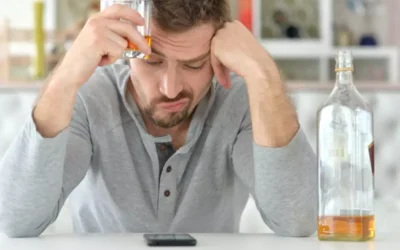Alcohol can irritate the lining of your stomach, which can make any hangover-induced nausea, abdominal pain, or vomiting worse, says Boris. Lots of people have sensitivities to certain food or chemicals they don’t even know about. Believe it or not, how many drinks you have doesn’t appear have a significant impact on how long a hangover lasts, according to a 2017 study.
Hangovers are the result of too much drinking, which is a form of alcohol abuse. When hangovers become more frequent, or if you notice you are unable to control how much you drink, you may be suffering from alcohol use disorder (AUD). AUD is a physical and psychological disorder that causes alcohol dependence. The best way to prevent AUD, and frequent hangovers, is to limit the amount of alcohol you consume. Some hangovers, known as a two-day hangover, last anywhere from 48 to 72 hours. These hangovers are usually the result of heavy drinking and can have lasting effects.
Signs You’re Suffering from Bad Hangovers
“Rather, it may have been due to the water you drank, the food you ate before drinking or even the type of alcohol you had,” Beaver says. Time is our most valuable resource, and our goal at Toast! Whether that’s sticking around with friends for one more drink, getting a good night’s sleep the night before a big meeting, or just helping your body feel its best day to day, remember to Toast! A single alcoholic drink is enough to trigger a hangover for some people, while others may drink heavily and escape a hangover entirely.
Also, make sure you have at least one glass of water for each alcoholic beverage consumed. The relationship with a patient and their primary care doctor can be extremely valuable, and that’s what you get with UPMC Primary Care. When you work with a primary care physician (PCP), you develop a lasting relationship. Your doctor will get to know you and your history and can plan your treatments accordingly.
Things to avoid
And yet, when you’re feeling your worst the morning after, there’s nothing you want more than to make that hangover headache (and the rest of the issues alcohol causes) to disappear. Electrolyte-packed beverages, nourishing foods, hydration, and time are all key factors when determining when a hangover will let up. Like so many other answers to science questions, “it depends.” Body weight and gender are very important factors. While five to eight drinks https://ecosoberhouse.com/article/how-long-does-a-hangover-last-how-to-ease-a-hangover-tips/ for the average man, and three to five drinks for the average woman, are enough to cause some degree of hangover, specific effects will vary greatly between individuals. Certain ethnic groups (Japanese, for example) have a genetically reduced ability to break down acetaldehyde, the main byproduct of alcohol, as it is first processed in the liver. This results in more reddening of the skin (““Asian flush”) and hangovers at lower amounts of alcohol.

This substance can cause a fast pulse, sweating and nausea. In most people, the body breaks down acetaldehyde before it causes problems. But it can cause inflammation in organs, leading to uncomfortable symptoms. You’re also more likely to have memory, concentration and coordination problems when you have a hangover. In general, the severity of your symptoms depends on how much you drank and for how long.
Nutrition and Healthy Living
How severe hangover symptoms are and how long a hangover lasts can depend on various factors, including your age, weight, and tolerance to alcohol. However, a typical hangover can last around 24 hours from when you stopped drinking alcohol. A hangover is a group of unpleasant symptoms that develop after drinking too much alcohol. Hangovers typically occur the morning after you drink alcohol, although symptoms can start to develop shortly after drinking. As a general rule of thumb, the more alcohol you drink, the more likely you are to have a hangover the next day. This is also true for the severity and length of the hangover, although many factors can change this.
- As a result, you’re more likely to throw up and have your hangover linger for a longer period.
- Early research shows that probiotics may help in some way, and private companies hope to make products — that you’d take after drinking or before — to ease symptoms.
- There’s no quick fix when it comes to hangovers, but there are several things you can do to make things more manageable as you wait it out.
We have a luxury selection of hangover remedies that can be delivered to you in the privacy of your home, office, or hotel room through intravenous fluid therapy. At The I.V. Doc, we are familiar with the discomfort that can be caused by hangovers, which is why we crafted this guide on how long a hangover lasts and traced some of our most effective hangover remedies. Your liver is often an unsung hero, fulfilling over 500 jobs without complaint — follow these five tips to avoid liver disease and keep yours running at maximum efficiency. Your body’s already under a little bit of strain during your period, and since alcohol can dehydrate you, it can deplete your energy even more on your period, says Dr. Cox.
Hangover Headache
Any designations or references to therapies are for marketing purposes only and do not represent actual products. Even the best of us forget to hydrate sometimes, and when alcohol is in the mix, you can end up with a cluster of uncomfortable symptoms and feelings of regret the next day. At Heroes’ Mile, located in DeLand, Florida, we specialize in helping veterans overcome their alcohol addiction and mental health issues. Our treatment facility was built for veterans, by veterans, and offers our patients the world-class care they deserve. “If you get a beer, it’s often a pint, which is four ounces more than the recommended size.
Motor pathways become overactive, and blood sugar is processed less efficiently in the brain. As more and more ethanol molecules enter the membranes of the nerve cells, sedating effects develop. The effects of alcohol intoxication are relatively predictable based on measured blood alcohol content. Doctors aren’t sure why, but hangover symptoms are most intense when your blood alcohol returns to about zero. For most people, that’s when you wake up the next morning after a night of drinking.
It’s all uphill from here, even though it feels like a slow burn during your day of recovery. A hangover is unpleasant, but symptoms tend to go away within a day or so. If you drank too much alcohol and feel sick, try at-home hangover remedies such as drinking plenty of water, eating some carbs and sleeping. You need to let your body rid itself of the alcohol and heal. If excessive drinking and hangover symptoms are interfering with your life, talk to your healthcare provider. There is some evidence that vitamin B6 taken before drinking can be mildly helpful.
- Everybody processes alcohol differently, so a few drinks for you might impact someone else completely different.
- And when you don’t feel well, your job performance suffers.
- Hangovers usually begin several hours after you stop drinking.
- The stomach lining may become irritated, increasing nausea and the chance of bleeding.
- Articles published on this site go through several rounds of review before publishing, including a clinical review conducted by UPMC medical experts.
That explains why a nasty hangover can continue to relentlessly lurk even after you’ve loaded up on water, painkillers, and a decent breakfast. Alcohol suppresses the release of vasopressin, a hormone produced by the brain that sends signals to the kidneys causing them to retain fluid. This lack of vasopressin makes you pee more and you lose more fluids. The services provided have not been evaluated by the Food and Drug Administration.


